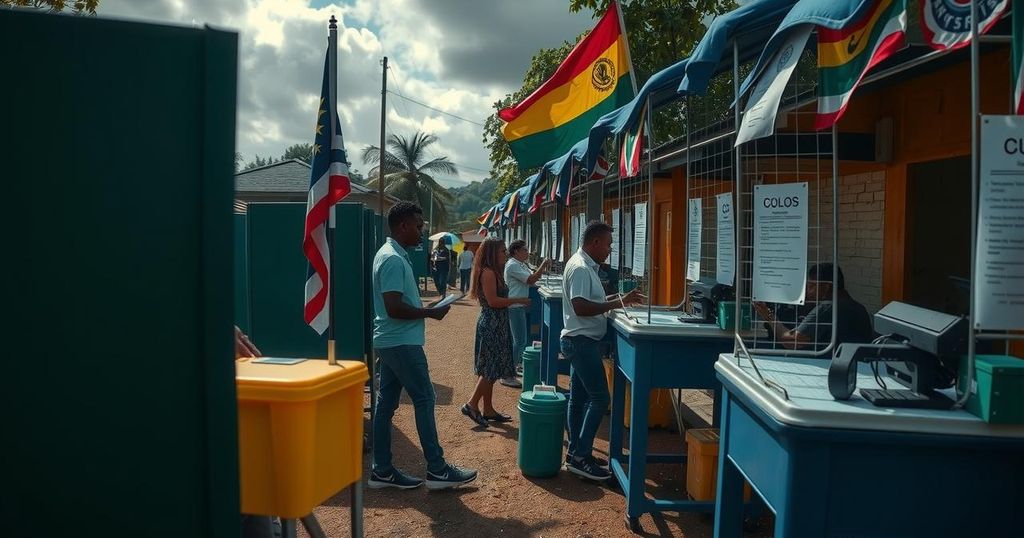Mauritius Holds Crucial Elections Amid Phone-Tapping Scandal

Mauritius held parliamentary elections amidst a phone-tapping scandal and rising concerns over democratic integrity. The election involved key political players, Prime Minister Pravind Jugnauth and former Prime Minister Navin Ramgoolam, both vying for control amid allegations of corruption and fraud. With a reported 70% voter turnout, the election results could have significant implications for the nation’s political landscape and governance.
On Sunday, Mauritius conducted a parliamentary election amidst concerns over a phone-tapping scandal that has marred the political landscape. The election was pivotal for the country’s political and economic stability, closely following a landmark agreement that granted Mauritius sovereignty over the Chagos Islands from Britain. The incumbent Prime Minister, Pravind Jugnauth, faced challenges as leaked recordings of confidential conversations stirred controversy, leading to public outrage and a temporary social media ban imposed by authorities. This electoral contest featured the ruling Militant Socialist Movement against the Alliance of Change, led by former Prime Minister Navin Ramgoolam. Despite a high voter turnout of 70% reported by the electoral commission, the election was overshadowed by allegations of fraud and concerns over the erosion of democratic principles. Observers from various regional groups monitored the voting process to ensure its integrity. Moreover, both major political factions exuded confidence in their chances of winning, pledging to tackle poverty and living costs. Analysts expressed worries about governance in the nation, highlighting that the foundation of checks and balances has weakened in recent years, resulting in increased corruption and political strife. The electoral backdrop served as a reflection of Mauritius’s long-standing democratic tradition, which has flourished since its independence in 1968. However, a shift in political leadership through only three prominent families and challenges posed by corruption scandals during the pandemic raised questions about the future governance of the nation. Overall, the electorate’s hopes for a more inclusive system stand in tension with the established political elite, who continue to dominate the political scene.
Mauritius is a stable and prosperous democracy in Africa, known for its economic success since gaining independence from Britain in 1968. The current election is significant not only for determining the future of the government but also for testing the integrity of the nation’s democratic institutions amid rising concerns over corruption and civil liberties. The recent sovereignty agreement over the Chagos Islands has highlighted Mauritius’s ongoing quest for decolonization but has also stirred various political dynamics and public responses. Leaks of sensitive conversations have intensified political scrutiny, putting the effectiveness and resilience of Mauritian democracy to the test.
The recent parliamentary election in Mauritius has highlighted critical issues surrounding democracy, governance, and political stability. While the ruling party and the opposition both expressed confidence in their prospects, the backdrop of a phone-tapping scandal and concerns over civil liberties raises pertinent questions about the future of political integrity in the country. The results could influence not only domestic policies regarding economic improvement but also the broader narrative of governance and democracy in Mauritius.
Original Source: www.guampdn.com






